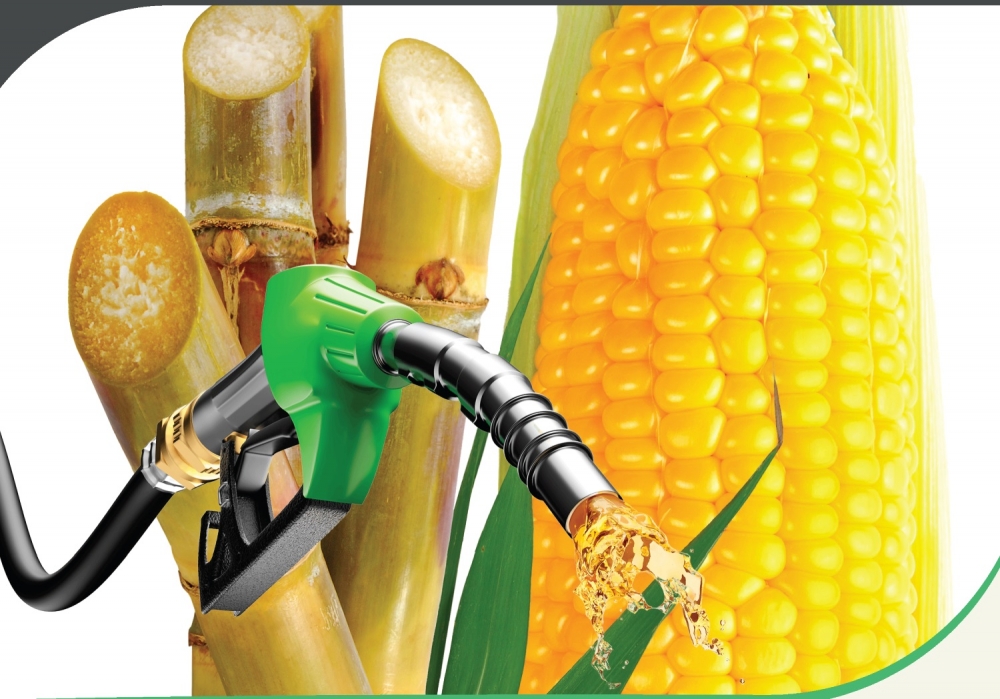


The book covers a wide array of topics, focusing in particular on the different energy options to reduce greenhouse gas emissions quickly (image: Editora Blucher)
Published on 11/13/2023
By José Tadeu Arantes | Agência FAPESP – Brazil is endowed with abundant natural resources and has a more diversified energy mix than any other country. As such, it can play a key role in the ongoing energy transition from fossil fuels to environmentally sustainable renewables. Biofuels are a variable of paramount importance in this equation. Currently, for example, Brazil blends ethanol from sugarcane with gasoline at a level of 27.5%, and uses hydrous ethanol neat in flexible-fuel vehicles. Ethanol from sugarcane accounts for more than 40% of the fuel consumed in Brazil by Otto cycle engines, the most common type of engine used in passenger cars and light trucks, and biodiesel is blended with diesel oil at 12%, up from 10% until April 2023; the level will rise gradually from now on until it reaches 15% in 2026.
All this has a history, with enlightening challenges, successes and failures involving an accumulation of knowledge that can benefit other countries. For example, India, the second-ranking producer of sugarcane after Brazil, has recently begun adding ethanol to gasoline at 20% and has started to produce flexible-fuel vehicles.
A book by leading experts Luís Augusto Barbosa Cortez and Frank Rosillo-Calle, The Future Role of Biofuels in the New Energy Transition (Blucher, 2023) was published with FAPESP’s support. It is a significant contribution to global awareness of this history and knowledge, which is all the more important in the context of climate change and will be of interest to both professionals in the area and readers concerned about the future of the planet.
A former professor at the State University of Campinas’s School of Agricultural Engineering (FEA-UNICAMP), Cortez is now a senior researcher at the university’s Interdisciplinary Center for Energy Planning (NIPE-UNICAMP). He is an authority on biofuels. His book Sustainability and Productivity, published in 2010, won a Jabuti Prize. Launched in 1958 by the Brazilian Book Chamber and awarded every year since then to recognize the best books in several categories, the Jabuti is one of Brazil’s most important publishing prizes.
Rosillo-Calle was born in Spain and is an Honorary Senior Research Fellow at Imperial College London in the United Kingdom. He has participated in many international research projects and academic activities at universities in Brazil, Spain, Thailand and the UK.
“Brazil enjoys an excellent situation in the energy sector. Our flex vehicles already emit less than European electric vehicles. Moreover, the crisis offers us an opportunity to make sustainable agriculture lemonade out of the lemons of deforestation,” Cortez told Agência FAPESP.
In contrast with resource-poor countries, he continued, the obstacle in the Brazilian case is not lack of space, water or sunshine, but mindsets and economic and political interests imprisoned in an unsustainable past.
Bioethanol has expanded in Brazil via reuse of degraded pasture, without cutting down trees or replacing food production. “Less than 5% of the land under crops in Brazil and less than 0.5% of its total area is sugarcane grown for biofuel. Yet it currently has 150 plants producing bioethanol in São Paulo state alone. The proportion is one for every two cities,” he said.
“We need to rethink the use of space, especially degraded pasture,” he added, noting that Brazil has 200 million hectares of pasturelands, or almost half the area of the Brazilian Amazon, which at about 420 million hectares is over half the area of the entire country, whereas agricultural activities occupy 70 million hectares.
“Animal density in this immense area of pasture varies significantly, and there are regions where it’s extremely low. Brazil could maintain its position at the forefront of world beef production while transitioning from extensive to feedlot cattle production, which would free up a great deal of land for sustainable agriculture without adding to deforestation in the Amazon or Cerrado [Brazilian savanna-like biome]. Farmers need to be convinced that confinement is better and that it’s far more advantageous to plant sugarcane or corn for biofuel than to raise cattle in vast areas of pastureland,” Cortez said.
These statistics are not well known in Brazil, let alone in Europe. Even in a country like Germany with a strong commitment to protecting the environment, there is bias against Brazilian biofuel based on the idea that sugarcane is “stealing” space from the Amazon Rainforest. “There’s so much misinformation. We hope our book ensures that more people are aware of the benefits offered by biofuels,” he said.
In Brazil, biofuel consumption could be even higher if it were not for the policy that links the price of ethanol to the price of gasoline, he continued. There is no objective reason for this correlation. Attracting consumers who ignore or are unaware of ethanol’s environmental virtues may be difficult, but the price at the pump is an argument anyone understands.
Electric cars will become more widespread in Brazil, he believes, but in the medium term, they will not be used outside major cities. “We have 70 million cars circulating in Brazil, and many of them are fairly old. You can’t renew such a large fleet overnight. What’s more, the entire supply chain will have to be reinvented,” he said.
The book covers a wide array of topics, focusing in particular on the different energy options to reduce greenhouse gas emissions quickly and achieve net zero (emissions minus removals) by mid-century – a necessary goal to stop the climate crisis from reaching catastrophic heights.
With a preface by Professor José Goldemberg, whose vast curriculum vitae includes a term as President of FAPESP (2015-18), The Future Role of Biofuels in the New Energy Transition can be purchased online from the publisher Blucher. An e-book version is also available from several suppliers.
Source: https://agencia.fapesp.br/50225